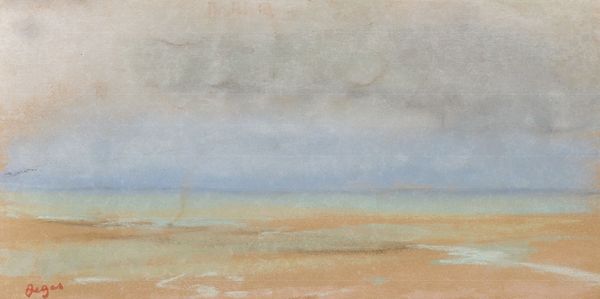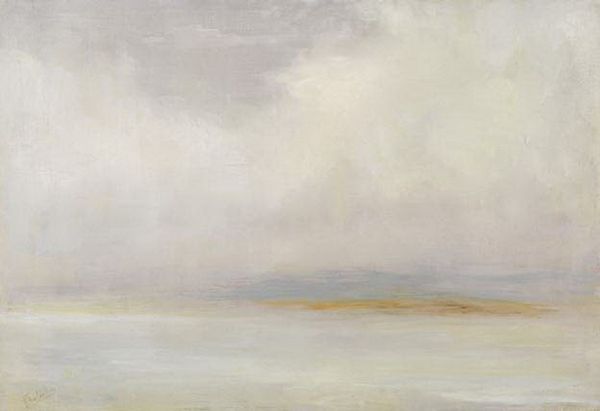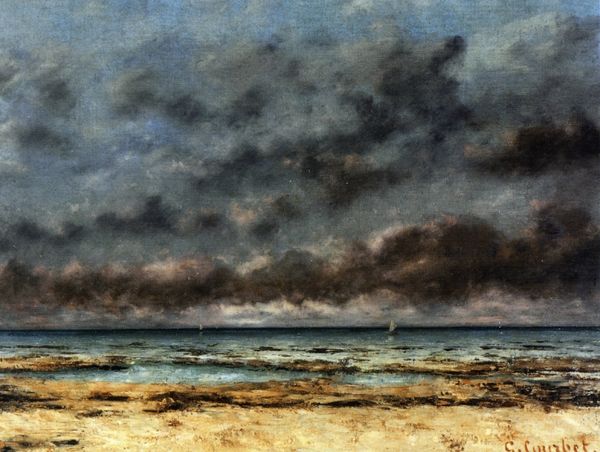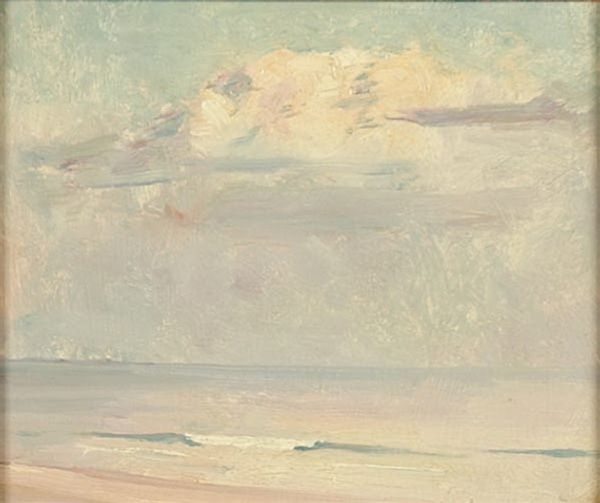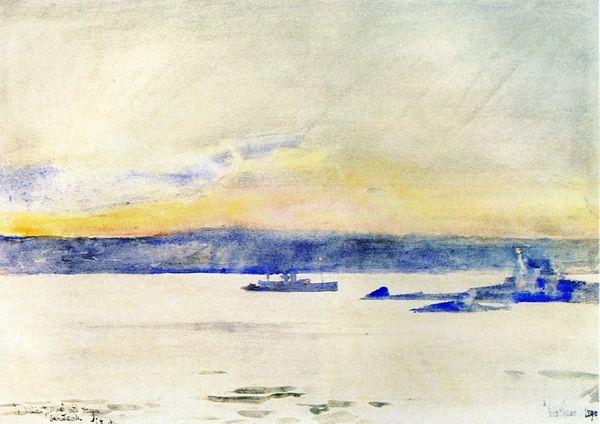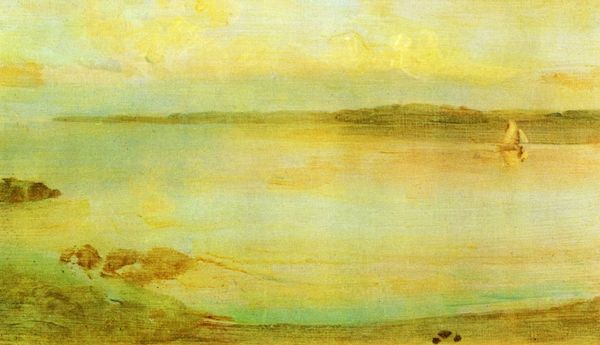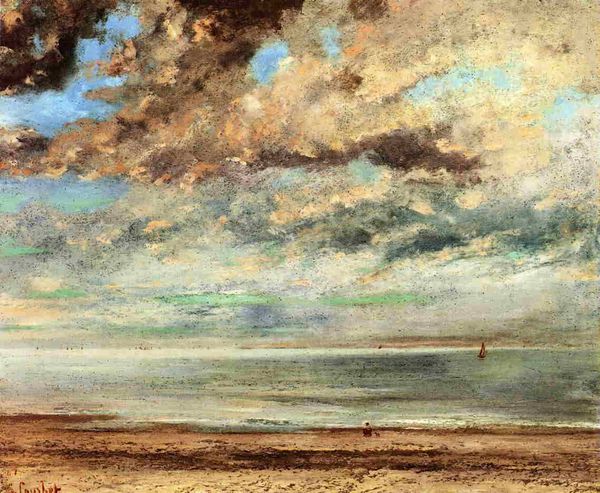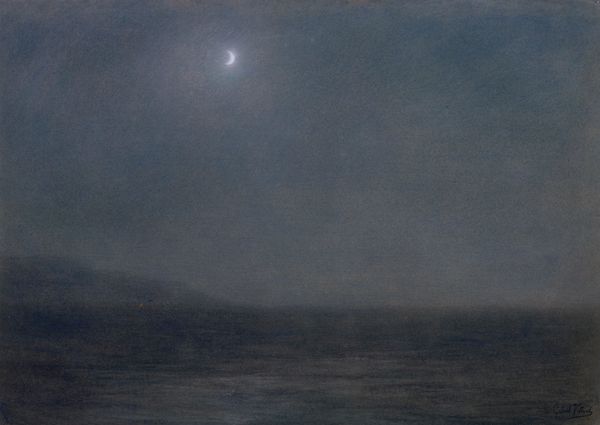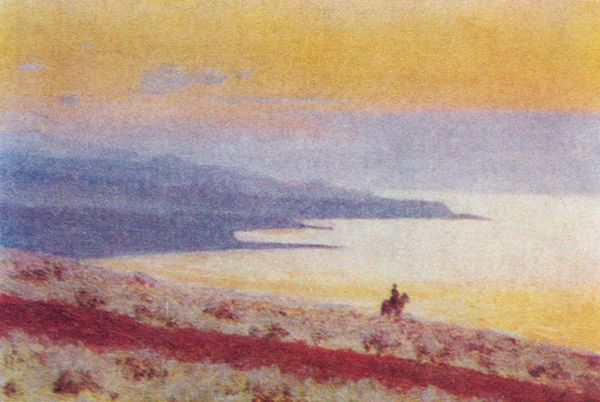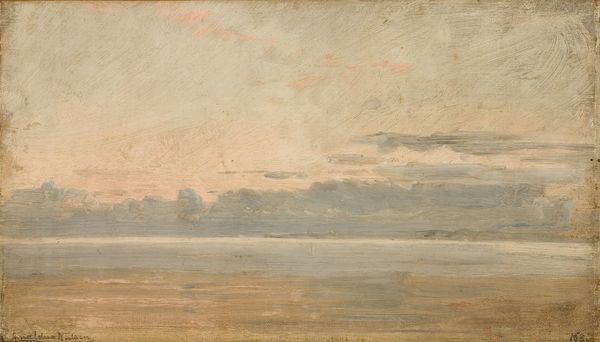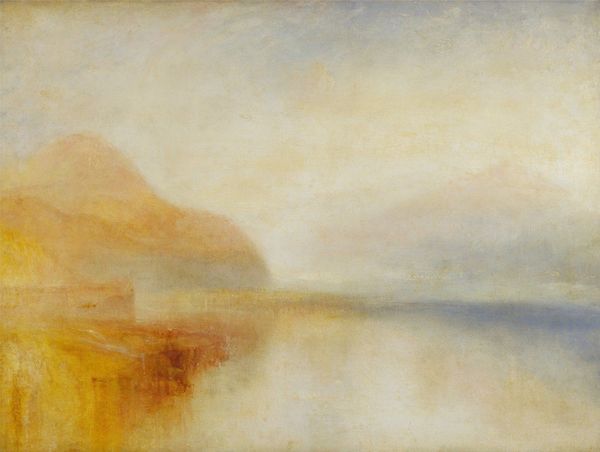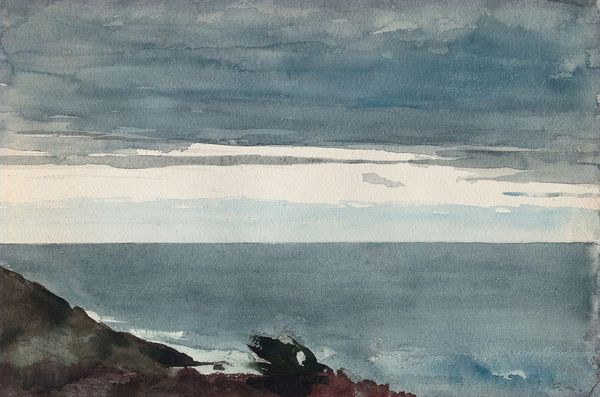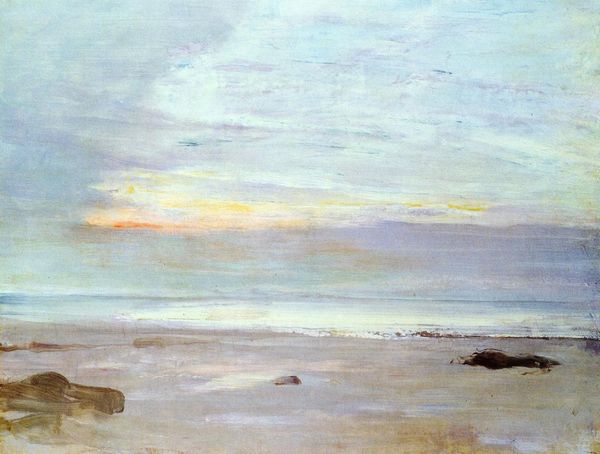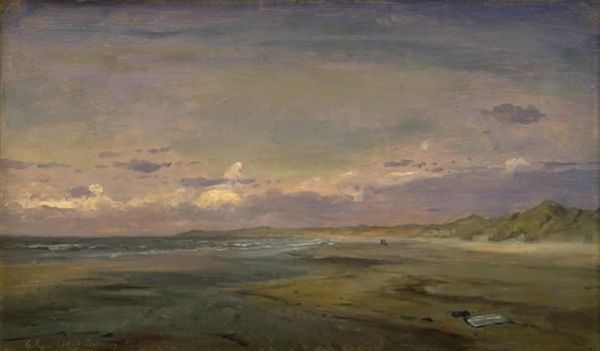
painting, plein-air, watercolor
#
sky
#
abstract painting
#
water colours
#
painting
#
atmospheric-phenomenon
#
impressionism
#
plein-air
#
landscape
#
possibly oil pastel
#
watercolor
#
ocean
#
cityscape
#
watercolour bleed
#
watercolor
#
sea
Copyright: Public domain
Curator: Here we have Edgar Degas' "Marina, Sunset," a watercolor created around 1869. The landscape itself seems almost secondary to the depiction of light. Editor: The color! It strikes me first with a sense of faded glory, that pale, bleached-out gold and grey... there's a fragility to it. And the horizon line cleaves the picture almost in two, underlining a division. Curator: Indeed. Division can signal conflict, transition or boundaries, reflecting a human desire for order but it may echo the inner landscapes we face when navigating new environments. Degas worked often ‘en plein air,’ meaning directly in the landscape – he was part of the impressionist desire to get closer to capturing that immediacy, the sensory input from light on water and air. The golden tones, typical sunset colours, evoke universal feelings associated with twilight – serenity and reflection but maybe tinged with melancholy about passing time. Editor: The horizontal bands—earth, water, sky—are rhythmically balanced, yet subtly varied in tone and texture, right? Each layer sort of dissolves into the next through the application of the watercolour medium. We see here less of his urban studies, which focused heavily on sharp linear perspectives. Degas blurs and dissolves outlines, as he emphasizes the chromatic harmonies present, to create a pictorial sense of spatial recession and ambience. Curator: These colors echo psychological and emotional transitions associated with liminality; between activity and rest, day and night, security and uncertainty, offering glimpses of symbolic significance in this transient atmosphere. What might such scenes remind one of? Voyages, meditations, or even perhaps something about emotional ephemerality as twilight’s aura surrounds simple acts of perceiving? Editor: Perhaps, it’s a meditation on the abstract properties of light and atmosphere captured on a single sheet, and also a formal study in how perception alters depending on how it’s presented as we see and organize elements using tonality within pictorial space. Curator: Ultimately, "Marina, Sunset" resonates because it shows we constantly search nature not just externally but reflectively -- as an archive to store communal ideas tied within color symbolism as visual echoes bridging between material realities to realms of perception and collective cultural understanding of existence and impermanence as this moment is rendered in these fluid strokes capturing how experience evolves perpetually with each setting sun. Editor: Exactly -- each of us will organize it differently according to internal cues derived both individually and culturally from sensory responses. This seemingly quiet piece demonstrates beautifully Degas’ ability to wring maximum expressiveness with just minimum means!
Comments
No comments
Be the first to comment and join the conversation on the ultimate creative platform.
